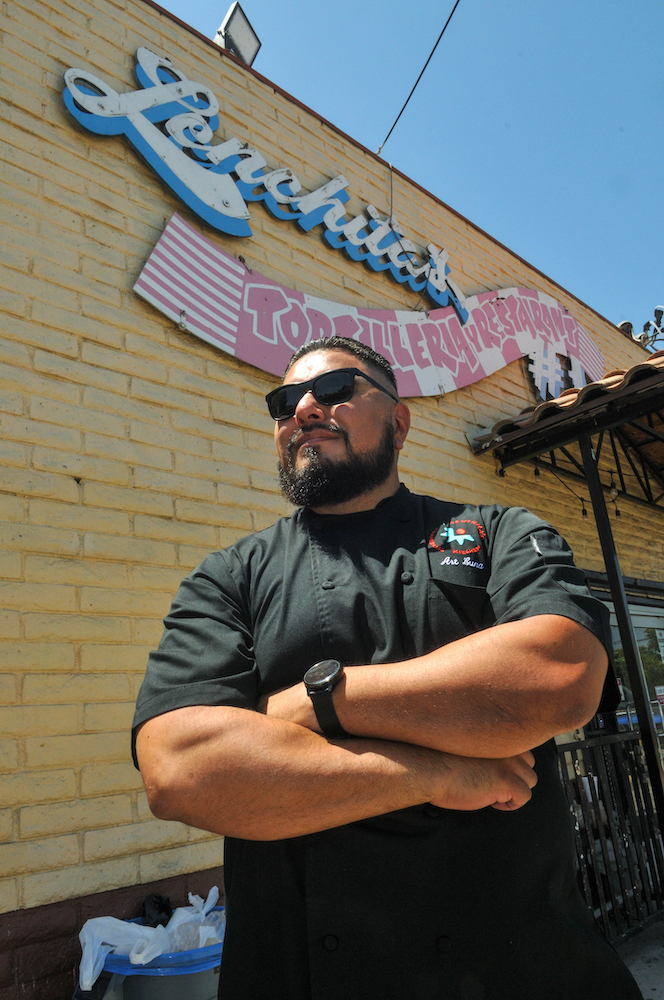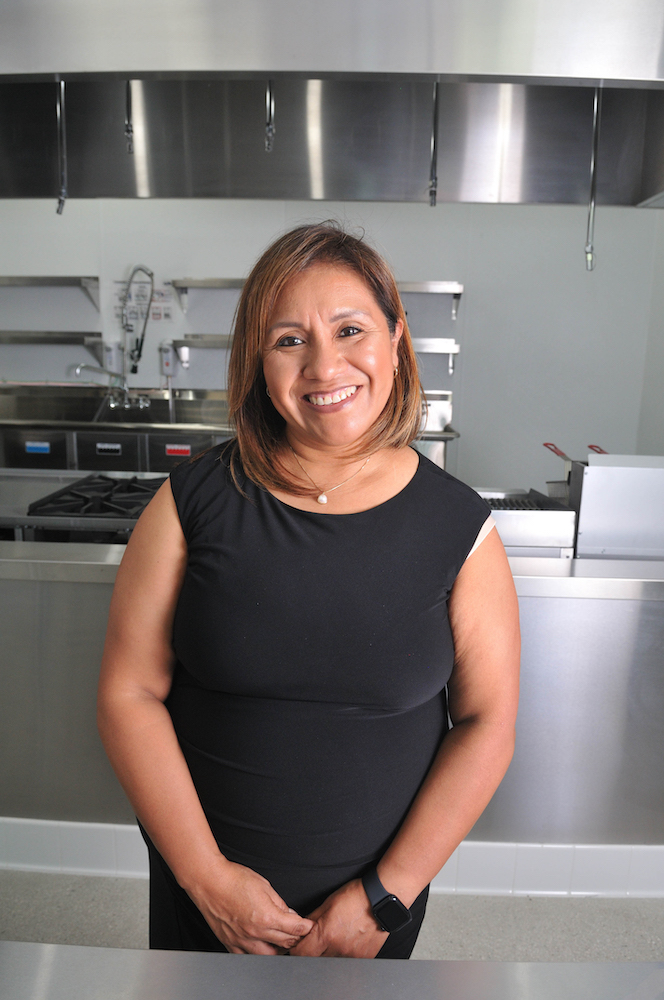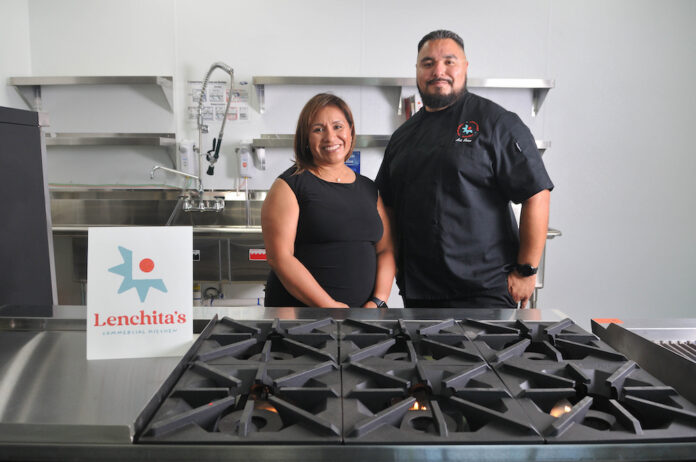After educating small-business owners in the San Fernando Valley for more than 20 years, the nonprofit known as ICON CDC is now administering the most valuable type of support businesses can get: access to capital.
Officially named the Initiating Change in Our Neighborhoods Community Development Corp., the organization is filing to become a Community Development Financial Institution, a federal certification that would authorize its loan business and unlock grant money. The community development corporation administered its first loan last month to Lenchita’s, a popular restaurant in Pacoima. ICON has 10 additional loans in the pipeline.
“Businesses need it,” said Roberto Barragan, managing director of ICON CDC. “Bank credit has tightened up, which is not that unusual in a pre-recession, high interest rate environment. Banks are starting to stay no, (but) we had businesses who need capital regardless.”
By opening a lending arm as part of its business development program, the Van Nuys-based ICON could become the only small-business financier in the Northeast Valley.
This capital desert developed after the Valley Economic Development Center Inc., commonly known as VEDC, a once-dominant lender for minority-owned and disadvantaged businesses, went bankrupt in 2019.
Barragan led this economic development center for almost 17 years, departing three years before its ultimate closure. Now he’s back in the community, looking to build back a borrowing vacuum left by his former organization.
Pacoima icon

The pandemic hit Lenchita’s hard. The family-owned operation lost 60% of its sales — a near-fatal blow to a business that had, historically, refused to raise its prices to accommodate its blue-collar customer base.
The owners didn’t want to lay off its loyal employee team — many had worked there for more than a decade — and closing an establishment that had survived three generations was, to the family, out of the question.
Arturo Luna, the eldest of the founder’s grandchildren, thought the restaurant’s empty warehouse could make up for lost profit. The vast space, he believed, could become a ghost kitchen.
The venture is called Lenchita’s Kitchen, a secondary revenue stream. Luna rents out kitchen pods to local chefs who need the space to cater events or develop food products.
Taking out a nearly $1 million variable-rate loan to finance the project, Luna picked up a low loan tab when cash was cheap two years ago. As permit requirements stacked up and the city inspections creeped slowly along, Luna’s interest rate ticked up, and ultimately tipped the scales on startup costs.
“The fees are what gets you,” Luna said. “It’s like, ‘woah, where did this come from?’ and (in) the timely manner.’ It’s getting better from what I hear, but it took us a while to get through it.”
Strapped for cash and short on the project’s completion, Luna approached ICON CDC for help six months ago. The chef initially expected business consultation services, but ultimately walked away with a refinancing deal and an additional loan.
The community development corporation worked with a Citigroup Inc. branch down the street from its Pacoima office, advocating for a refinancing deal that would decrease Luna’s 11% interest rate. Citibank agreed to refinance the loan, and ICON offered a separate $50,000 loan in addition to the refinancing to push Lenchita’s Kitchen past the finish line.
With ICON hosting the kitchen’s grand opening on Thursday, the organization made its public debut as the new lender in town.
“Now that we’re here, we’re going to be doing loans, now we’re expanding,” said Yoryana Ahuactzi-Aguilar, the ICON program manager who administered Luna’s loan. “I think people are going to know who ICON is, and who ICON is going to be.”
The ITIN banker

Ahuactzi-Aguilar has worked with business owners in the North Valley for years, starting from the lending division of the now-dissolved VEDC. She manages two of ICON CDC’s business source centers in partnership with the city of Los Angeles.
“It’s very challenging for clients to apply for a loan at their financial institution, either because of their credit, or their cash flow is not strong enough,” Ahuactzi-Aguilar said. “And sometimes they are ITIN holders, and they don’t have valid documentation to apply.”
ITIN holders often are undocumented who do not have a Social Security number and use an individual taxpayer identification number to pay taxes. ICON plans to be a business lender for people without valid documentation, while most traditional banks disqualify their applications.
The organization will invest in both startup and established businesses in the area. While ICON CDC has administered grants, particularly during the pandemic, this is its first business-to-business transaction pipeline.
Capital originates from a business incubation program helmed by former state senator Bob Hertzberg, as well as operational support from U.S. representative Tony Cárdenas of California’s 29th District.
According to the list of certified community-development financial institutions published by the Treasury Department, three entities hold this accountability designation in the San Fernando Valley. In cities such as Pacoima, Van Nuys and San Fernando proper, there are none. For comparison, Los Angeles has 15 certified institutions.
The federal government defines these financial institutions as “mission-driven,” creating economic opportunity for small businesses typically overlooked by larger banks for credit lines. Credit unions and loan ventures in this group focus capital allocation in underserved communities, offering belo-market rates to promote economic inclusion.
ICON’s bid to become such an institution is underway, and Barragan is hoping for regulatory approval by the end of this year or early next year. Despite the VEDC’s substantial default on millions in bank loans, both Barragan and Ahuactzi-Aguilar are upbeat about the support and funding a certified community development institution can bring for banks looking for local partners.
“They know the strength that the VEDC carried, and the community was very powerful,” Ahuactzi-Aguilar said. “Business partners notice that, and clients like the idea.”
